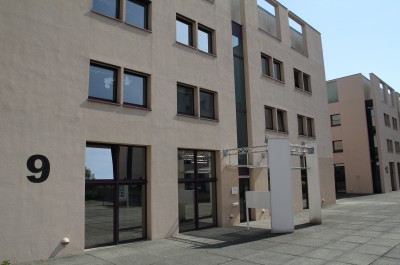Heads of the research unit:
Dr. Laura Klebe und Prof. Dr. Thomas Bliesener
The interdisciplinary research unit “Institutions of Social Control” primarily focuses on (criminal) enforcement, particularly in the context of penal and custodial measures. However, the unit also examines the work of the criminal justice system and other institutions of social control that respond to norm violations through formalized procedures (e.g., police, youth and family services, sports tribunals). The central focus of the research unit revolves around the conditions for general and specific preventive effects of formal sanctions. Specifically, our research aims to explore the extent to which the intended preventive effects can be achieved through sanctions, and how these effects may be shaped by the characteristics of the sanctions (e.g., different types of sanctions), the offenders (e.g., attribution of impulsivity, affect, competence), and the sanctioning institutions (e.g., perceived legitimacy or experience of procedural justice).
 |
 |
Research Focus
The research unit is structured into three main areas. The first research focus, Evaluation of Specific Forms of Sanctions, involves the analysis and assessment of formal responses to deviant behavior to evaluate their feasibility and effectiveness. In the second research focus, Individual Deterrence, Sanction Trajectories, and Sanction Management, the influence of offender characteristics on the deterrent effect of sanctions is examined, along with how previous sanction trajectories and their circumstances have affected the likelihood of sanctions. The third research focus, Experience of Sanctions in Criminal Proceedings and Custodial Settings, explores the experiences of individuals affected by sanctions in criminal proceedings and custody.
The approach is typically multimethodological, integrating a wide range of qualitative and quantitative research methods, from (expert) interviews to studies of unreported crime and analyses of court records, to the evaluation of official and registry data.
Current Research Projects
The three research foci represent interconnected and partially overlapping areas that serve as a common framework for the interdisciplinary research unit. Projects can be located either within one focus or at the intersections of several focal points.
- Femicides in Germany
- Evaluation of the Prostitution Protection Act (ProstSchG)
- Evaluation of the Lower Saxony Police and Regulatory Authorities Act (NPOG)
- Evaluation of the legally designated mitigating circumstances for sentencing under Section 46 (2) of the German Criminal Code (EPa46II) to assess and facilitate their application in practice
- What is the impact of the reform of Section 43 StGB (German Criminal Code)? – A study on recidivism following the enforcement of the reduced substitute imprisonment
- Transgender people in prison
- “Non-Punishment Principle” (NPP): Legal Basis and Application in Germany
- Hostile / Discriminatory Acts in Soccer

